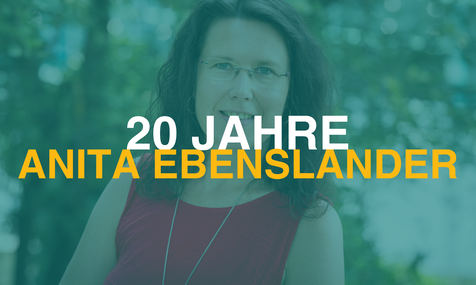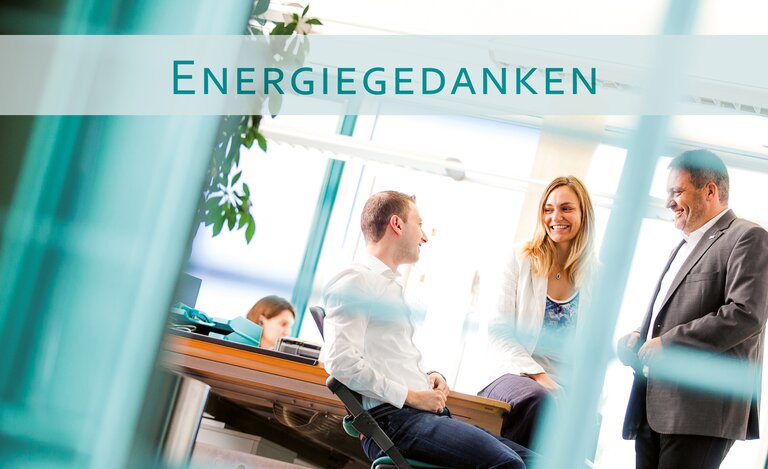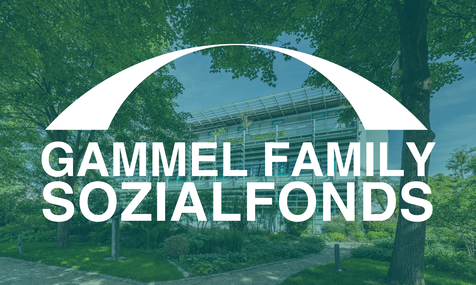Is the electricity industry starting to rethink?
Operating and, if possible, expanding electricity transmission grids is very lucrative: that's no secret. Thanks to the guaranteed returns, the four grid companies in Germany dream of being allowed to build as many new extra-high-voltage lines as possible across the country. We have already reported on this several times in the Gammel-Energie blog.
www.gammel.de/de/Stromnetz-Wettbewerb---was-ist-das-Das-deutsche-Liberalisierungsmaerchen/blog/8093
Since the transmission companies have monopolies and are supported quite unanimously by the federal government, the Bundestag and the Federal Network Agency in expanding their power over the power lines. The keyword "Grid Expansion Acceleration Act" actually says it all.
However, there is also an anti-grid expansion movement in the electricity industry. Until now, it has been rather small, inconspicuous and powerless; electricity rebels such as the Sladeks from the Black Forest with their "Elektrizitätswerke Schönau" were smiled at rather than taken seriously by the "big players" in the scene. Now, however, one of the "top 10" in the energy industry is apparently also admitting to being an opponent of expansion. The regional group N-ERGIE AG from Nuremberg - which operates the distribution grid in large parts of northern Bavaria with its subsidiary Main-Donau-Netz GmbH and holds 20.53 percent of the shares in the municipal utility group Thüga AG, which operates throughout Germany - has virtually fraternized with route critics such as associations and the Bund Naturschutz against the expansion of the transmission grids.
www.bayerische-staatszeitung.de/staatszeitung/wirtschaft/detailansicht-wirtschaft/artikel/von-leitungen-kohlestrom-und-der-trassenluege.html
"Decentralization" is the magic word for which N-ERGIE even commissioned a study by the renowned Prognos AG and the University of Erlangen. "Line lie" is a second term: it was written in huge letters in the hall where the exchange with the line critics took place.
www.n-ergie.de/static-resources/content/vp_sales/resources/doc/N-ERGIE_Studie_Zellulare_Optimierung_final.pdf
As can be read everywhere, new power lines costing billions are to transport "wind power to consumers in Bavaria and Baden-Württemberg" from north to south. Underground high-voltage direct current transmissions (HVDC) such as the SüdOstLink from Wolmirstedt to Gundremmingen are particularly controversial.
However, if scientists such as government and EU consultant Prof. Lorenz Jarass are to be believed, wind power plants in northern Germany are not the reason why over 10,000 kilometers of new extra-high-voltage lines are now being planned. "Because conventional power plants are allowed to feed into the grid even when renewable energies are producing a lot of electricity, the existing electricity grid is being overloaded," claims the scientist. For him, the planned expansion of the electricity grid is therefore primarily the fault of eastern German lignite-fired power plants. He believes that their feed-in commitments should be withdrawn, which would quickly put an end to the huge demand forecasts.
Gas storage and pipeline network already there
However, there is already a pipeline network criss-crossing the country. With almost unlimited capacity: The (long-distance) gas pipelines. With power-to-gas (P2G), surplus electricity from wind, photovoltaics, biomass and even coal could be directed to exactly where energy is needed. Problem solved without the cost of new power lines.
www.zsw-bw.de/forschung/regenerative-kraftstoffe/themen/power-to-gas.html
Sector coupling - bringing together electricity, heat and mobility - would also be a success. It would even be possible to create a European network without major investment. And another problem would also be solved: storage. Producing gas in summer and consuming it in winter - no question. After all, the gas network is the largest energy storage facility in our country and has been tried and tested for many years. Combined heat and power plants could convert the gas highly effectively into electricity and heat. And even if the conversion efficiency of P2G is (still) inadequate, this use is definitely better than increasingly switching off the producers of green electricity when too much electricity is generated. This total economic loss is a farce.
www.bveg.de/Erdgas/Erdgasspeicher
However, the government, Bundestag and Federal Network Agency continue to focus on power line expansion. Unfortunately, they pay little attention to new ideas such as those of N-ERGIE or the gas network. And the transmission system operators are happy: their guaranteed returns are safe for decades to come.
(Author: Zukunftsenergie-Team Gammel)



